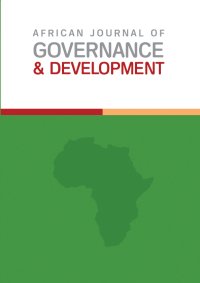Local Government and the Attainment of Sustainable Development Goals in Nigeria: Lessons from the Millennium Development Goals
Main Article Content
Abstract
Local government is regarded as a veritable tool in the implementation of any poverty alleviation
programme, given its proximity to people at the grassroots and its potential for prompt and efficient service delivery. Sustainable Development Goals (SDGs) are a collection of 17 global goals set by the United Nations to end poverty and guarantee a secured future for the world by the year 2030. The global agenda was a follow-up to Millennium Development Goals (MDGs) which were also aimed at addressing the pervading poverty ravaging the African Continent. This
paper undertakes an overview of MDGs and which SDGs had come to succeed with a view to discovering the inherent weaknesses in their implementation, which should be avoided if SDGs
are to make an impact. A documentary data from secondary sources such as the U.N. working papers and other relevant materials or sources on the activities of both the MDGs and SDGs were
subjected to content analysis. An assessment of the MDGs globally presents a varying degree of success. Specifically, a scorecard of MDGs in Nigeria records very low performance. Out of the eight targeted goals, the country succeeded in managing to meet two, namely, improved maternal health and global partnership, while major critical goals of poverty reduction, education and environmental sustainability that have direct bearing on the people are still in need of serious attention. This paper identified a critical gap of absence of active involvement of local government in the implementation of the MDGs. For SDGs to make intended impact, increased participation and partnering with local government becomes a necessity
Article Details

This work is licensed under a Creative Commons Attribution-NonCommercial-NoDerivatives 4.0 International License.
